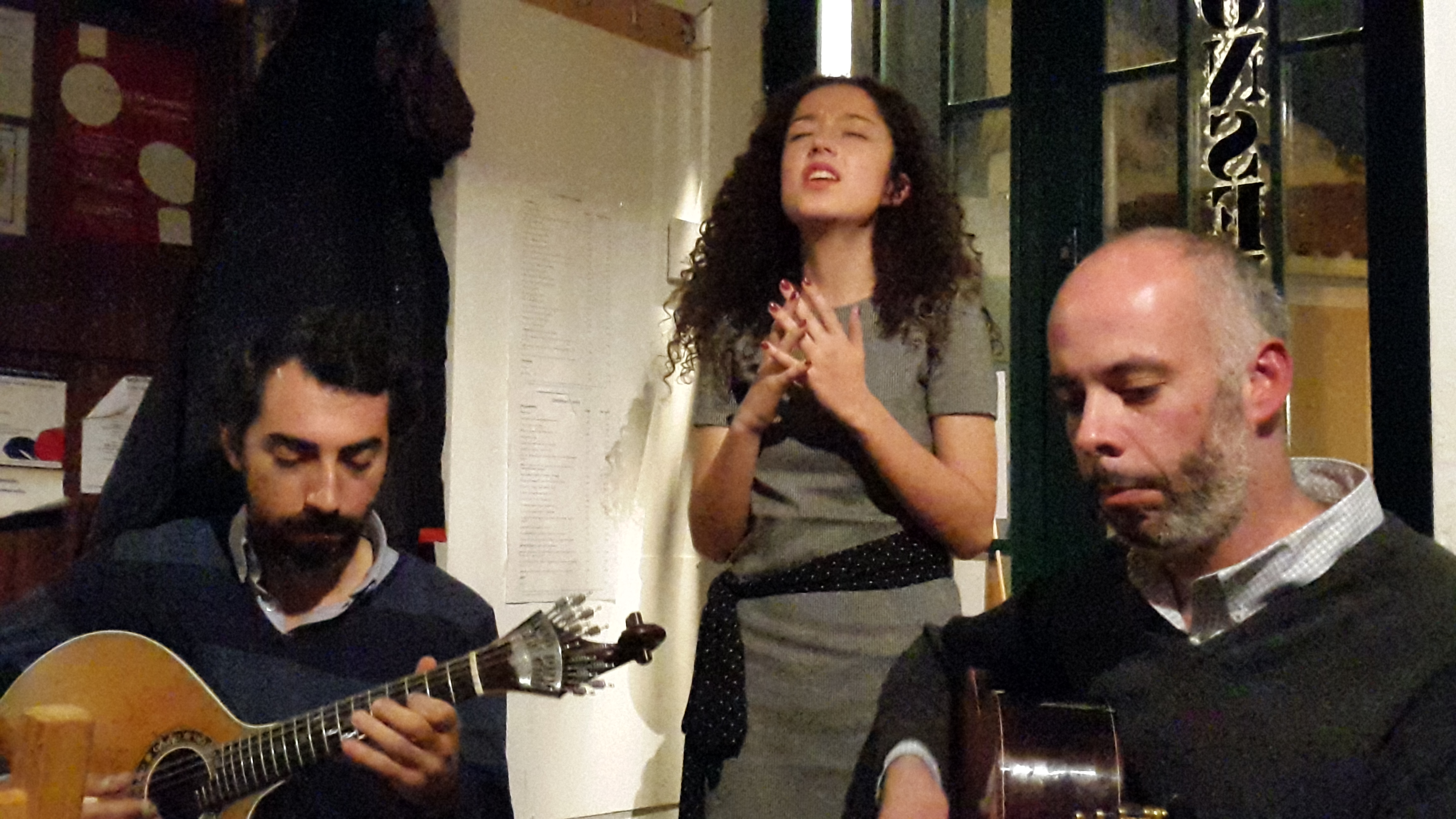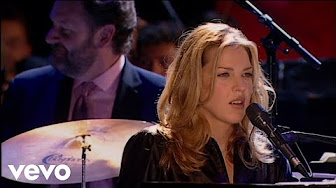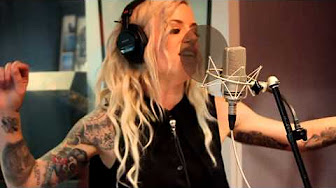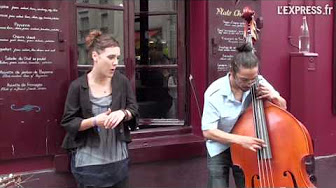
How can it be that I like so different kinds of music?
The theory
Let’s assume that we as human beings have needs of identification and of compensation. To satisfy the need of identification we might have a predisposition to search for persons, ideas, cultural expressions etc. that we can relate to in terms of qualities that resemble important traits of our own personality. This process does not have to be conscious. On the contrary it probably most of the time goes on although we are unaware of it. In finding friends and partners this might mean that the same kind of personalities are attracted by one another, maybe in order to build smooth relations with few frictions. In terms of music it means that my personality and the music I like are in harmony and speak the same “language” in terms of emotions, expression and ideas. I feel at home with this kind of music.
The need of compensation means instead that we in fact also have a predisposition to search for and relate to persons, ideas, cultural expressions etc. that are different from the predominant traits of our personality. The aim might be to help the weaker sides of our personality to balance our dominant traits. Again, we might very well be unaware of this process. In finding friends and partners this might mean that different kinds of personalities are drawn to one another, maybe in order to build relations with access to different kinds of predominant traits. In terms of music it means that I might like music that helps weaker sides of my personality to come forward once in a while.
Actually I believe that we have both kinds of needs. Sometimes we need more of resemblance and identification; sometimes we need more of difference and compensation. But if we almost always search for resemblance and identification it might be because we are afraid of difference and change, and if we almost always search for difference and compensation it might be because we are dissatisfied with our own personality. At its best the two drives are in balance over a period of time.
Me
In rough terms, who am I? I believe I am a more introverted than extroverted person, more thoughtful and serious than action oriented and funny, more melancholy than cheerful. But underneath my thoughtful appearance there are strong emotions. And beauty and aesthetics is important to me. Sometimes more important than function.
Of course there is much more to say, and there are lots of reservations to such a brief characterization, but let’s see what it can be used for in terms of analysing music preferences.
The artists
So far I have been talking about music preferences, but in relation to Musik.pm it is often more interesting to talk about the individual artists and their music. The charisma and expression of the artists are often important in the music I like. So, in fact, what I am trying to capture might be resemblances and differences between personalities – the personalities of the artists expressed in their music and my own personality. Whether an artist’s personality in music also is his or hers personality outside music, I do not know. When getting closer to an artist you sometimes realise that he or she in terms of personal traits probably is more varied than the expressions of their songs. They, as we, of course have predominant and weaker sides of their personalities.
Below you will find five of my favourite artists and one favourite genre. By means of quotes from earlier posts and a few music videos I try to show why they have become favourites of mine. If you want to read more about the artists and enjoy some more of their music videos you can of course go to the original posts.
Diana Krall
I have no difficulties to identify the traits of Diana Krall’s music that attracts me. It is spelled out in my post about Diana in March, 2017, original posted in Swedish in May 2013, telling the story of how I found her in the beginning of the new millennium. The serious and intense expression, manifested by her slowing down even already slow ballads, was in perfect harmony with the basic traits of my own personality. After a couple of hectic decades in life this was what I then really needed, not only as a relaxation but also as a meeting with my own basic mentality.
One day at the beginning of the new millennium, I heard on the radio a Burt Bacharach song in an interpretation that was new to me. The vocalist had a deep and sensual voice, and she sang slowly with a strong sense of presence and with a serious emotional expression. And then there was the beautiful and restrained piano. The expression of this interpretation reached something in me that hadn’t been reached for a long time. The song was The Look of Love, and the singer was Diana Krall. Right there in life I was struck by music again, and it was Diana Krall who hit me. (From the post Diana Krall, 18 March, 2017)
Keren Ann

Source: YouTube
I can also easily see why Keren Ann’s music is very close to my heart – at this instant in life probably the music that is closest. As an introverted person I need refuges in life, and the seriousness of Keren Ann matches my need for taking things seriously. And the sheer beauty of Keren Ann’s melodies, and her singing them accompanied by her own guitar, satisfy my needs of exactly that – beauty. Her melancholy satisfies my need of both seriousness and beauty. Again, you can find the base for these conclusions expressed in my first post about Keren Ann and her music from 8 June, 2016.
The biography presented on Keren Ann’s current website starts with chapter 7, referring to her seventh album. This is not where I am in terms of listening. I have briefly listened to all seven albums and have found many beautiful songs, but I keep coming back to “chapter 2” and “chapter 3” – the second and the third album – La Disparition (2002) and Not Going Anywhere (2003). On these albums Keren Ann’s musical expression of soft melancholy and intimacy is like a refuge, a sanctuary I do not want to leave for a long time.
But it does not end here. Keren Ann’s later music sometimes has a more rough expression. Can I follow her into that terrain? I think I can. This is what I wrote in my post Alone with Keren Ann after seeing her two concerts in Paris, May 18-19, 2017, trying to describe my feelings towards the more rough parts of her concerts.
The guitar she uses is an electric one. The way she plays it does not contribute to the soft side of her music. On the contrary, the strong and sometimes forceful electric sounds stand out in sharp contrast to the soft guitar from her early career. At first I am a little bit disappointed, but after some time I acknowledge that this is an alley which Keren Ann wants to explore, and then I want to follow her. I trust her and she seems so much to enjoy what she is doing. Her usual shy expression is still there, but it is mingled with happiness for the strong music she is making.
So Keren Ann provides music that I can relate also to my search for compensation and development. It is as if she herself gives an example of the second part of my theory, the search for difference, change and development. Maybe it is also her search.
But after some thought I realize something. The guitar fools me. Although the guitar is rough, that rough expression is still harboured in Keren Ann’s general expression of melancholy. I can recognize myself in that. Could it be that whatever Keren Ann (and I) do, it is always within a framework of melancholy?
It Ain´t No Crime / In Your Back
Fado

Domingos Mira, Joana Almeida and João Vinhas at Conserva-te
What about my love of the Portuguese fado then? Where does it come from? Although fado and I come from different cultures, and I learned to love Fado only a couple of years ago, I actually believe my love comes from identification and resemblance. In the post I wrote after our fado excursion in Portugal last year the resemblance theme is to me obvious – the beauty, the seriousness, the emotional involvement, the concentration of the expression. The excursion started at the fado restaurant Casa da Marinquinhas in Porto. Here are some quotes from my post A Fado Experience, 11 November, 2016.
And then one of the most beautiful combinations of instruments – the Portuguese and the classical guitar – starts to colour the background of the Fado song. Soft, but nevertheless energetic. They do so with a delicate fabric of tones in which it is sometimes difficult to distinguish who is contributing which thread. Still, the different sounds of the two guitars are very distinct.
After a short and beautiful guitar introduction, often with a bittersweet colour, the fadista starts to sing. And the song is not less beautiful. The fadista tells the emotional story (most often a sad one) with closed eyes, and he/she does not open them until a storm of applause releases the tension of the fadista and the audience. There is never a second of silence between the song and the applause. It is as if the concentration of the strong emotions that the fadista and the musicians create gets its release when the last almost forceful tones of the guitars and the fadista are hit.
And later about me as an emotional man.
I find that the male Fado expression communicates a more sincere representation of genuine male emotions than the ones I have experienced in many other cultural expressions. I can in Fado find a home for my own emotions, not only as a “male guest” in the female representation of Fado, but also when members of my own sex interpret Fado.
And finally again about the beauty of concentration.
In general, the strong emotions of Fado, and the common focus on the experience at the Fado houses, fit my personality and temperament very well. The emotions that the music creates are felt inside every Fado house guest, but those feelings are not expressed during the Fado song. We all know that we share the experience, but we do not devalue it by comments, chit chat or eating.
On the surface it might not be obvious that fado is congenial with my personality, but it hits me right in the heart.
Carminho: Lágrimas do Céu (A post about Carminho here.)
Gin Wigmore
And now for something completely different. We are heading for three examples of artists who with their charisma and their music bring me something that balances my main personal traits.
First out is Gin Wigmore from New Zeeland. Although not quite accurate, the simplest way to characterize Gin is that she is a rock star. On the whole her music, her voice, her looks, her tattoos, her video productions under-pin the rock star image – but still, underneath all that there is also something else. Her ballads are beautiful, and after having seen her perform live in a small club I must say that she seems to be a very nice person – not at all the depraved rock star type. And what gives me reason to provide a reservation to the rock star characterization might be a bridge to the predominant traits of my personality.
But although there are these deviations from the rock star image, Gin with her music is a person that very much enriches me by being quite something else than my predominant personal traits. Although Gin’s music, her voice and appearance are far from the music above, it gives me happiness. It does so by compensating the introverted and thoughtful traits of my personality – and thereby helps the weaker sides of my personality to come forward.
I do not quote my Swedish post about Gin Wigmore from 2012 here, but there are lots of music videos there to prove my case! Here are two of them.
(After the publication of this post about personality and music preferences, I have updated and translated the Swedish post about Gin Wigmore into English. You can find the new post here.)
Zaz
My next example is a young woman whose personality even less resembles my predominant traits. In the post I wrote about her in 2012 you can easily see why she is an artist who richly compensates those traits. In my first contact with her music videos I just couldn´t have enough.
At 00.02 on June 14, 2011, I received a music tip by e-mail from a friend in Germany. It took me a few days until I had time to investigate it, but as soon as that was done, a new great music personality made an entrance into our home – the young French singer Isabelle Geoffroy, better known under the name of Zaz. There are plenty of live performances with her on YouTube, and I must admit that I the weekend 18-19 of June spent many, many hours searching for her music, and time after time enjoyed what I found.
Zaz is a singer with great musicality and a lovely, somewhat hoarse voice. She is also equipped with a lot of positive energy and a large measure of personal and natural charm that unites with the musical expression. No choreographer seems to have given Zaz advice on how to perform on a stage. Only her musical pleasure of performing and singing shapes her bodily language. It is irresistible. Someone has said that she needs to be disciplined as a performer to be able to perform an entire show, but I wonder if that medicine can make her better than what you can see now. (Translation to English of my Swedish post Zaz, 7 December, 2012)
Join me in enjoying two of the videos from my post about Zaz. This is far from the main traits of my personality, but I love it.
From Montmartre: Les passants
From La Fête de la Chanson Française – Je veux and Le long de la route
Lucy Woodward

Source: LW
And last, a singer who I found in February 2014, Lucy Woodward. In the beginning I especially came to enjoy some of her early recordings where I apprehended something of a cabaret style and in some of the songs also an R&B influence. But regardless of genre it was Lucy’s charisma built on energy and humour that appealed to me. She made me happy. Again, humour and energy was needed to balance my serious and thoughtful traits.
This is the introduction to my Swedish post about Lucy, originally from 2014, later included in an English post 2017.
Lucy Woodward is a young American music entertainer with a great feeling for jazz, funk, soul, R&B and other related genres. The reason why you should call her an entertainer, and not just a singer, is her ability to engage both herself and the audience in an entertaining mix of musicality, soul and humour. This is something you have to experience. Attempts to describe her in words will not do her justice. Therefore I stop trying here, and instead refer you to the links below.
And these are some of the songs that at first made me fall for Lucy Woodward and her music. She has now musically moved on, but she is still a favourite.
You
So what about you? Has this post made you think about your personality, the music you enjoy and why you like it? If so, what are your thoughts and conclusions?


